SUMMARY
This is AI generated summarization, which may have errors. For context, always refer to the full article.

Editor’s Note: More than six months since Rodrigo Duterte stepped down from the presidency, thousands of orphaned children, wives, mothers, siblings, families left behind by victims of the violent war on drugs continue to relive painful memories. Coming mostly from the poorest communities across the Philippines, they pine for justice and accountability, some still pinning hopes on the International Criminal Court to investigate the killings. In this series, Rappler revisits some of those who were left behind – to listen and retell their stories – as they seek justice in the face of continuing fear and challenges post-Duterte.
First of 4 parts
MANILA, Philippines – August 5, 2017 should have been just another ordinary day for Lisa*.
She would wake up early to tend to her longtime partner, Paolo, and their three young children, in their small house in one of the busiest and most populous districts in Metro Manila. Paolo, the main breadwinner of their small family, would then go out to work driving a tricycle through busy roads and picking up and dropping off passengers going about their equally ordinary lives.
It’s not big money, but enough for their daily necessities. When times got rough, Paolo took on side gigs. Lisa, a hard worker through and through, complements the household’s income by working a job that earns her P5,000 a month.
This was the couple’s routine that worked for so long. Paolo and Lisa always found ways to overcome challenges, especially financial ones. They had each other, they had their children, they were able to eat three times a day. That’s not an easy feat in a country where almost 20 million people live below the poverty line, barely able to afford to eat, let alone live comfortably.
On August 5, 2017, Lisa woke up around three in the morning, hours earlier than usual. Paolo was not yet at home after visiting a friend the night before. It was a first sign of what eventually would be their upended lives. The children – then aged 7, 9 and 12 – would later wake up without a father. And Lisa, a single mother.
All because on June 30, 2016, Davao City mayor Rodrigo Duterte was sworn into the presidency. His violent rhetoric was woven into the national fabric and largely accepted, if not tolerated.
“Kung hindi siya naging presidente, hindi siya nagsalita sa harap ng publiko na papatayin ko kayong lahat, na uubusin ko kayo in six months, siguro walang nangyaring ganitong gulo,” Lisa told Rappler in an interview on Monday, January 16.
“Sana hindi namatay ang asawa ko, sana kasama pa rin namin siya, at sana may katuwang pa ako sa pagpapalaki sa mga anak namin,” she added.
(If he didn’t become president, didn’t speak publicly about wanting to kill people, promising to erase them in six months, perhaps all this mess wouldn’t have happened. My partner wouldn’t have died and he would have still been with us, and he would have continued helping me raise our children.)
Paolo was added to the list of more than 3,451 people killed in police operations by the end of July 2017, or roughly a week before his death.
By May 2022, a month before Duterte left office, this number would blow up to at least 6,252 individuals, excluding those killed vigilante-style which human rights groups estimate to be at least between 27,000 to 30,000.
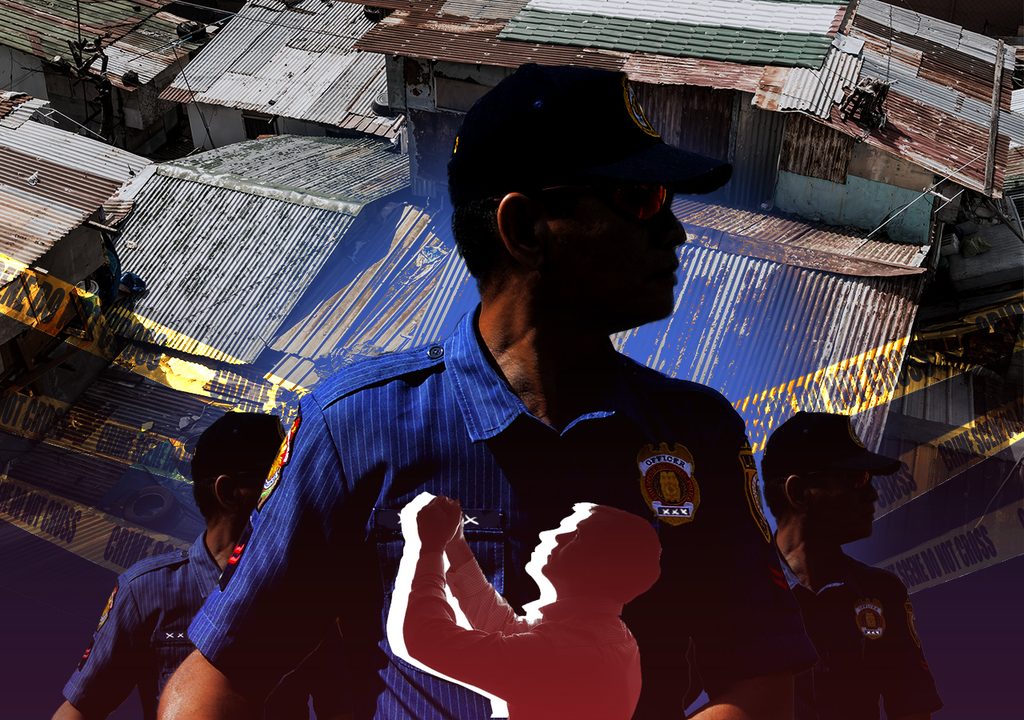
Begging for his life
There are always two narratives emerging from each police operation that turned deadly under Duterte’s anti-illegal drug campaign.
Police often hid behind the claim of self-defense. The suspect, the target of their late-night operation, allegedly had a gun and was hell-bent on resisting arrest. If the cops were to be believed, they had no choice but to fight back to save their lives.
But as more bodies piled up, the self-defense claim further unraveled, as investigated by various independent bodies. The Commission on Human Rights found “abuse of strength” and “intent to kill” by police in the cases they investigated. Even the Department of Justice-led panel even said that records they reviewed showed that police did not follow protocols in anti-drug operations, further denting the narrative of authorities.
It was not so different for Paolo, according to Lisa. Police said that he ran back to his friend’s house, retrieved a gun from under a bed, and shot at them.
Witnesses, however, remembered the night quite differently. It was close to midnight, the end of another busy work week for many who strive to make ends meet. The streets were still full of people gossiping with friends, when cops not wearing their uniforms allegedly surrounded the neighborhood.
They ordered everyone to their homes. Like clockwork, like they’ve been doing this for so long, the residents followed, shutting behind them their doors and windows. They knew all too well what was about to happen. It was a common sight, after all, ever since Duterte took office. They knew that whoever was in that house, the target of that night’s police operation, would not come out alive.
“Narinig daw nila ang asawa ko na nagmamakaawa na huwag siyang patayin kasi may tatlo pa siyang anak na maliliit pa,” she recalled the neighbors telling them. “Pero nakarinig na sila ng isang putok, alam na nila na patay na, tapos may mga sumunod pa na mga putok.”
(They heard my husband begging for his life, telling the police that he still has three young children. But then they heard a gunshot, and they knew he was dead, then another round of gunshots.)
Paolo was shot three times – two in the head, and one on his chest. He died on the spot.
It took a few hours before Lisa knew what happened to the father of her children. She ran from her home to the scene of the crime, where hostility from the police welcomed her.
There were a lot of things Lisa will never forget from that night while being stricken with grief. She remembered seeing the new and shiny gun that the police claimed to be Paolo’s. It angered her because she knew it was a complete lie. She remembered a cop folding a piece of paper – allegedly the list of that night’s targets – believing her partner’s name was not there in the first place.
Then there was the overheard conversation between the police and someone from the Scene of Crime Operations (SOCO).
“Sinabi noong isang taga-SOCO sa pulis: ‘Ano ba iyan, hindi pa kami tapos sa kabila, sunod-sunod naman kayo’,” Lisa recalled. “Grabe ano, hindi pa nila tapos imbestigahan iyong mga patayan sa ibang lugar, tatakbo naman sila dito sa nangyari sa asawa ko.”
(Someone from SOCO told a cop: We aren’t even done with the other one but you’re doing operations one after another. It’s intense how they run to other areas like what they did with my husband when they haven’t even finished investigating the killings in other areas.)
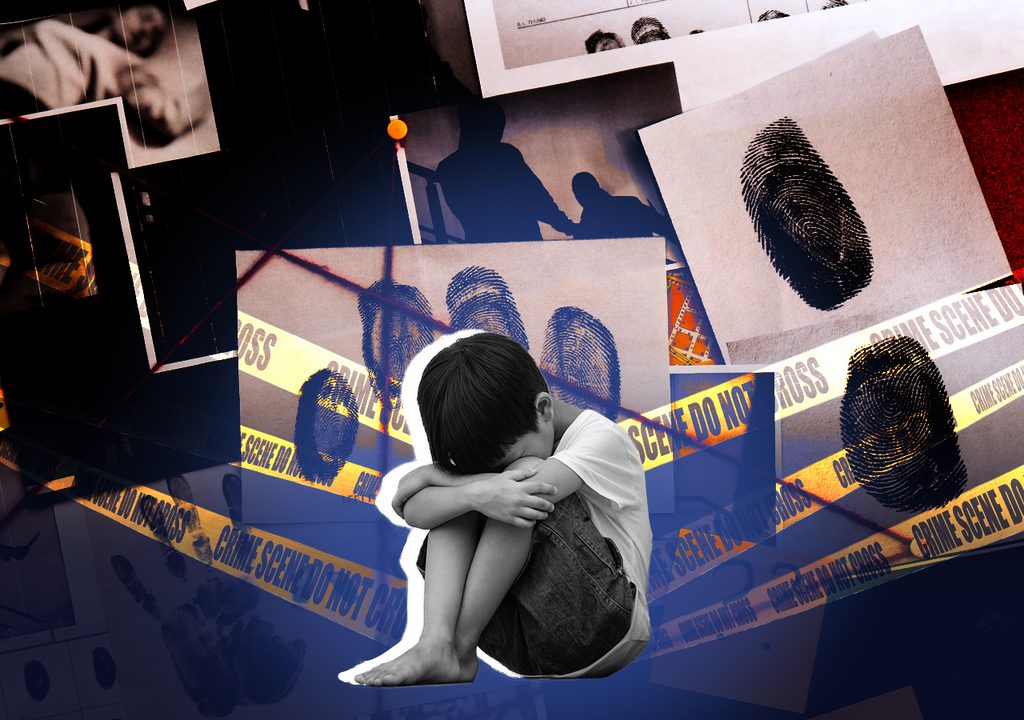
Lives changed, unanswered questions
Any death brings permanent changes to the lives of those left behind. As writer Joan Didion put it in her book about grief: “A single person is missing for you, and the whole world is empty.” But for families of the slain, those whose lives were cut short by violence, the world is both empty and cruel.
Lisa grappled with a lot of challenges that made even getting the most basic documents difficult. She and Paolo were not married, a detail that was often used by police to ignore her, so his eldest sibling had to be present whenever she went to police stations.
Together, they tried to question what the police claimed happened that night. But they were told everything was in order, and that authorities have all the evidence to prove that Paolo indeed fought back.
“Gusto ko lamang may makulong, gusto ko lang naman may managot, pero hindi ko na siya nailaban sa korte kasi nga nakikiusap kami sa mga nakakita na baka puwede silang magsalita kaso ayaw nilang humarap, takot rin sila,” she said.
(I just want someone to be jailed, to be held accountable for what they did, but I was unable to fight this in court because witnesses refused to come forward and talk, even if we begged them to, because they were also afraid.)
If it was only up to Lisa, she wouldn’t think twice going against the police’s narrative. She’s certain that Paolo did not have a gun, much less knew how to use one. When they saw a photo of the crime scene, Lisa noticed that the gun was on the right hand of Paolo. She knew him for more than a decade, and being left-handed was one of his unique traits.
But their priority was to bring home Paolo’s body from the morgue, to raise enough money to afford a proper wake and burial for the family’s main breadwinner. The more they antagonize the police, the less likely they are to release documents that would help them get financial assistance from the Department of Social Welfare and Development.
Lisa also had to face the reality that the cops who killed Paolo were likely still stationed in their community. She couldn’t risk losing her life. She didn’t want her children to wake up one morning as orphans, reliving the day they lost their father.
“Iyong takot nangibabaw kasi baka sundan kami kasi noong panahon na nakaburol ang asawa ko, ang daming umiikot na sa paligid namin na mga police mobile pero dati walang ganoon,” she recalled.
(Fear was overwhelming because we were scared they would come after us. There were so many police mobiles going around during my husband’s wake. That wasn’t the case before.)
The burial of Paolo did not stop the challenges Lisa and her family had to face. As mourners return to their own lives, Lisa has to live with the fact that she’s a single mother, left to raise three children.
The second child was the most affected as he was the closest to Paolo. He refused to go to school, dragging his grades down, according to Lisa. But all three had questions of their own.
“Ang dami nilang tanong noon at hanggang ngayon na malaki na sila, ang dami pa rin nilang tanong na bakit pinatay ang tatay nila,” Lisa said.
“Tanggap naman na nila at alam nila na hindi na maibabalik ang buhay ng tatay nila, pero marami pa rin silang gustong malaman sa nangyari sa tatay nila,” she added.
(They had a lot of questions then, and until now that they’re older, they still ask a lot of questions about why their father was killed. I think they have accepted that his life can never be returned, but they still want to know what really happened.)
Lisa also had questions of her own: How will she raise her children? Where will she get the money for everyday life? How will she continue with this grief?
Slowly, Lisa dealt with her grief and trauma with the help of other widows and mothers left behind by those killed under Duterte’s drug war. A local church organized the women, establishing a support system that proved to be vital as killings continued in the Philippines.
Human rights organizations also helped Lisa augment her measly income of P5,000 a month, enabling her to at least support her children. But above all, she learned how to use her grief to help others and learn more about their rights.
“Hinuli na lang sana, tapos ikulong, harapin sa korte ang kaso, pero sa aming mahihirap, hindi ganoon kasi ang nangyayari. Hindi mo pa nga napapatunayan na malaki ang kasalanan, pero diretso papatayin na,” she said.
“Iyon ang masakit, ang hirap maging mahirap. kasi ganoon na lang iyon, wala ka nang malalaban pa at isipin na lang palagi na ipasa-Diyos na lamang,” Lisa said.
(They should’ve just arrested them, let them face cases in court, but for us who are poor, that’s not what happens. Even without guilt being established, people are immediately killed. That’s what hurts. It’s so hard to be poor because you really cannot fight back and you’re left to think you’ll just leave it all up to God.)
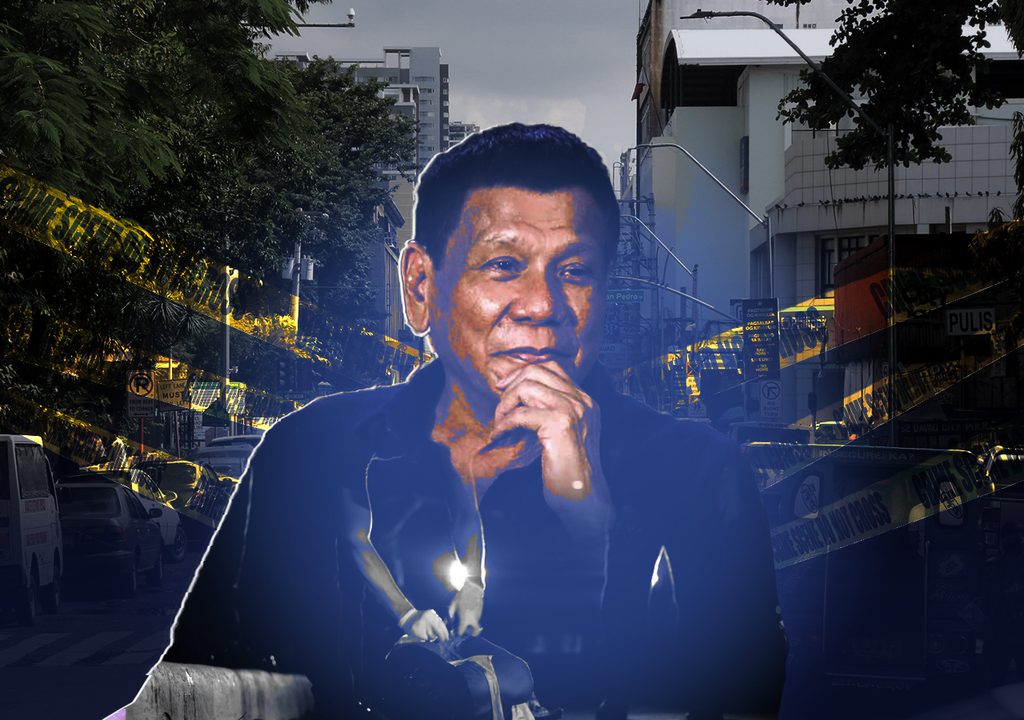
Holding Duterte accountable
It’s been almost six years since Paolo was mercilessly killed, when neighbors heard him beg for his life for the sake of his and Lisa’s three children. Their eldest child is now 17 years old, the youngest almost 12.
Duterte, the person who ordered the slaughter of Filipinos, continues to evade any form of accountability, spending his post-presidency days in Davao City, the same place where he allegedly oversaw the infamous Davao Death Squad. Self-confessed hitmen, including retired cop Arturo Lascañas, alleged Duterte replicated the system in his hometown to a nationwide scale when he became president in 2016.
President Ferdinand Marcos Jr. repeatedly said he is committed to upholding human rights while Justice Secretary Jesus Crispin Remulla in October 2022 vowed “real justice in real time.” But there has been no significant development since then.
Marcos should walk his talk and go beyond promises, according to Lisa. If he wants to show seriousness about human rights, his administration should make sure Duterte faces the court over the thousands of killings under his watch.
“Dapat habulin at panagutin nila si Duterte, hindi iyong nagbubulag-bulagan sila kung sino ang may kasalanan kasi paano naman kami? Malilimot na lamang ba ang lahat ng nangyaring patayan?”
Lisa still works the same job and has found fulfillment in her involvement with victims’ groups. She closely follows news about efforts to bring victims to justice, including the developments at the International Criminal Court (ICC).
The ICC pre-trial chamber on January 26 authorizes the resumption of the probe, saying it’s “not satisfied that the Philippines is undertaking relevant investigations that would warrant a deferral of the Court’s investigations on the basis of the complementarity principle.”
The office of ICC Prosecutor Karim Khan is expected to seek more evidence that could lead to a request for the issuance of summons or warrants to those involved in the drug war.
These days, Lisa admits it’s so easy to lose hope given how things are going in the Philippines. She often just distracts herself with work and her children. On some nights, she allows herself to get lost in internet videos.
One Saturday, Lisa came across an online video showing Duterte riding his motorcycle in Davao City, flanked by escorts and some of his closest allies. She felt extreme emotions that seemed to throw her back to the early hours of August 5, 2017, when she found out her longtime partner Paolo was killed by the police.
“Ang lakas ng loob at ang kapal ng mukha niya, parang walang nangyari, ang saya ng buhay niya samantalang ako ang sakit sakit pa rin,” she said.
“Oo nga naka-move on naman na kahit kakaunti, pero sumasakit pa rin ang loob ko kapag nakikita kong patuloy pa rin ang buhay ni Duterte, pero heto kami pinipilit magpursige na alam namin na pinatay ang aming mga mahal sa buhay,” Lisa added.
(He has the gall and audacity to act like nothing happened. He’s enjoying life while I’m here, still suffering. We’ve moved on, even if only a little bit, but it hurts to see Duterte live his life while we struggle, knowing our loved ones were killed.)
She hit the angry reaction button out of impulse, but immediately undid it out of fear. Her name was visible for all to see. There are other ways to fight and call for justice. (To be continued) – Rappler.com
*Names have been changed for their protection
PART 2 | Pain lingers as 2 brothers lost under Duterte’s drug war, 1 under Marcos
Add a comment
How does this make you feel?



![[WATCH] Bamban POGO scandal: There’s a bigger fish than Alice Guo](https://www.rappler.com/tachyon/2024/07/inside-track-tcard-bamban-pogo.jpg?resize=257%2C257&crop=435px%2C0px%2C1080px%2C1080px)
![[Vantage Point] China’s silent invasion of the Philippines](https://www.rappler.com/tachyon/2024/07/TL-china-silent-invasion-july-16-2024.jpg?resize=257%2C257&crop=318px%2C0px%2C720px%2C720px)

![[The Slingshot] Lito Patay’s 4 hours and 38 minutes of infamy](https://www.rappler.com/tachyon/2024/07/Lito-Patay-4-hours-infamy-July-19-2024.jpg?resize=257%2C257&crop=233px%2C0px%2C720px%2C720px)

![[The Slingshot] A Duterte and Bato cop named Patay](https://www.rappler.com/tachyon/2024/06/tl-lito-patay.jpg?resize=257%2C257&crop=322px%2C0px%2C720px%2C720px)






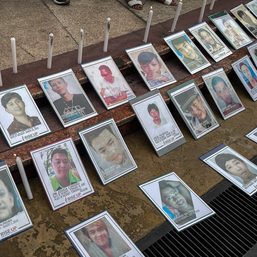
![[EDITORIAL] Sorry Arnie Teves, walang golf sa kulungan](https://www.rappler.com/tachyon/2024/03/animated-arnie-teves-arrest-carousel.jpg?resize=257%2C257&crop=310px%2C0px%2C720px%2C720px)
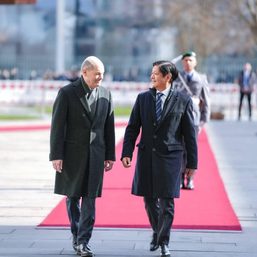




![[OPINION] Rodrigo Duterte and his ‘unconditional love’ for China](https://www.rappler.com/tachyon/2024/04/rodrigo-duterte-xi-jinping-august-2019.jpeg?resize=257%2C257&crop=91px%2C0px%2C900px%2C900px)
There are no comments yet. Add your comment to start the conversation.